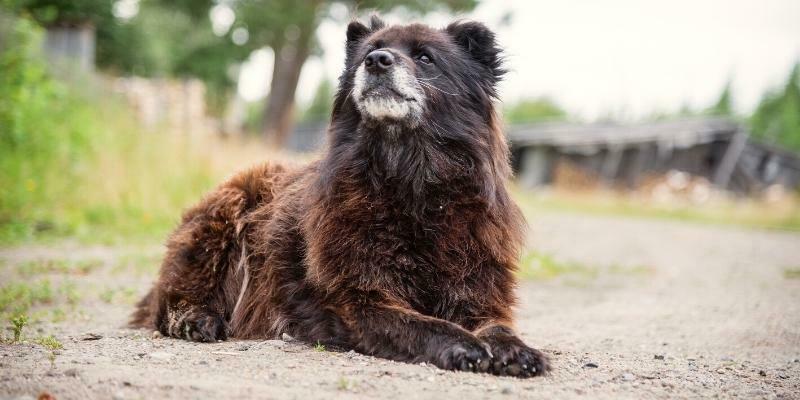As our pets age, some may develop a cloudy appearance to their eyes. Here are a few of the most common reasons for cloudy eyes in dogs.
Corneal changes
The cornea is the clear “window” portion of the eye, through which we can see the circular, coloured iris and black pupil.
A common cause of corneal clouding is an eye injury (such as an eye ulcer or penetrating foreign body) that causes inflammation and/or infection of the cornea. Pets with corneal damage require prompt assessment and treatment to help prevent severe eye damage.
Another common cause of corneal clouding is glaucoma, where there is a build-up of fluid and pressure within the eyeball. This can happen due to structural issues within the eye (which can be hereditary), or as a result of other diseases, such as eye inflammation. Glaucoma can rapidly cause permanent blindness in affected pets, not to mention severe pain, so it necessitates urgent treatment!
Lens changes
The lens is a clear disc-shaped structure that sits just behind the black pupil of the eye and allows us to focus our eyesight to varying distances.
The lens is usually transparent, but often becomes cloudy in older pets due to nuclear sclerosis; an age-related change where the lens becomes denser. Affected pets can show problems with close vision, such as difficulty spotting treats that you drop in front of them or hesitancy walking down stairs, particularly in low-light conditions.
However, dogs may also develop a cloudy appearance to their lenses with cataracts, which occurs due to changes in the water balance or protein structure inside the lens. This can occur as a hereditary issue, but also due to other underlying diseases, such as diabetes. Similar to nuclear sclerosis, pets with cataracts can show problems with close vision, such as difficulty spotting treats that you drop in front of them or hesitancy walking down stairs, particularly in low-light conditions.
Eye cloudiness can have a number of causes, many of which are best treated as promptly as possible to protect your dog’s sight. If you notice any changes to the appearance of your pet’s eyes, it’s best to seek prompt advice from our veterinary team. We’ll give you clarity on any cloudy eye issues!

